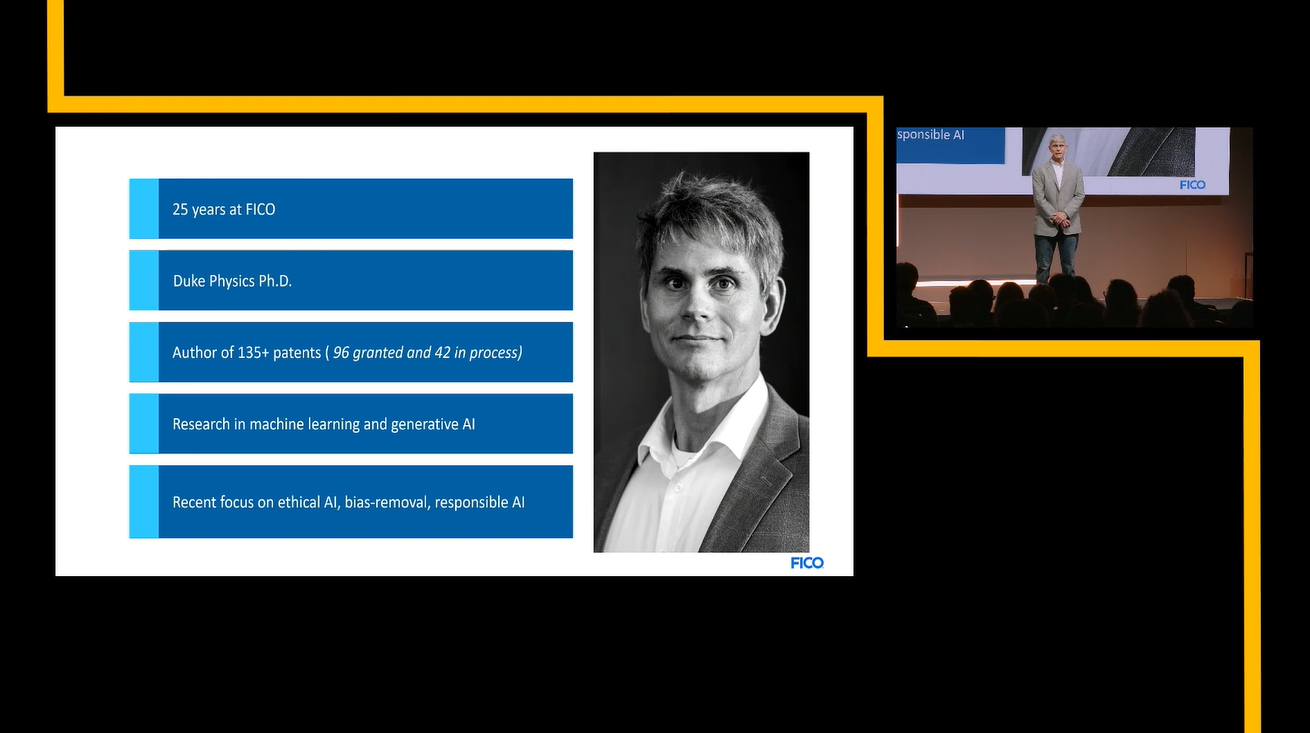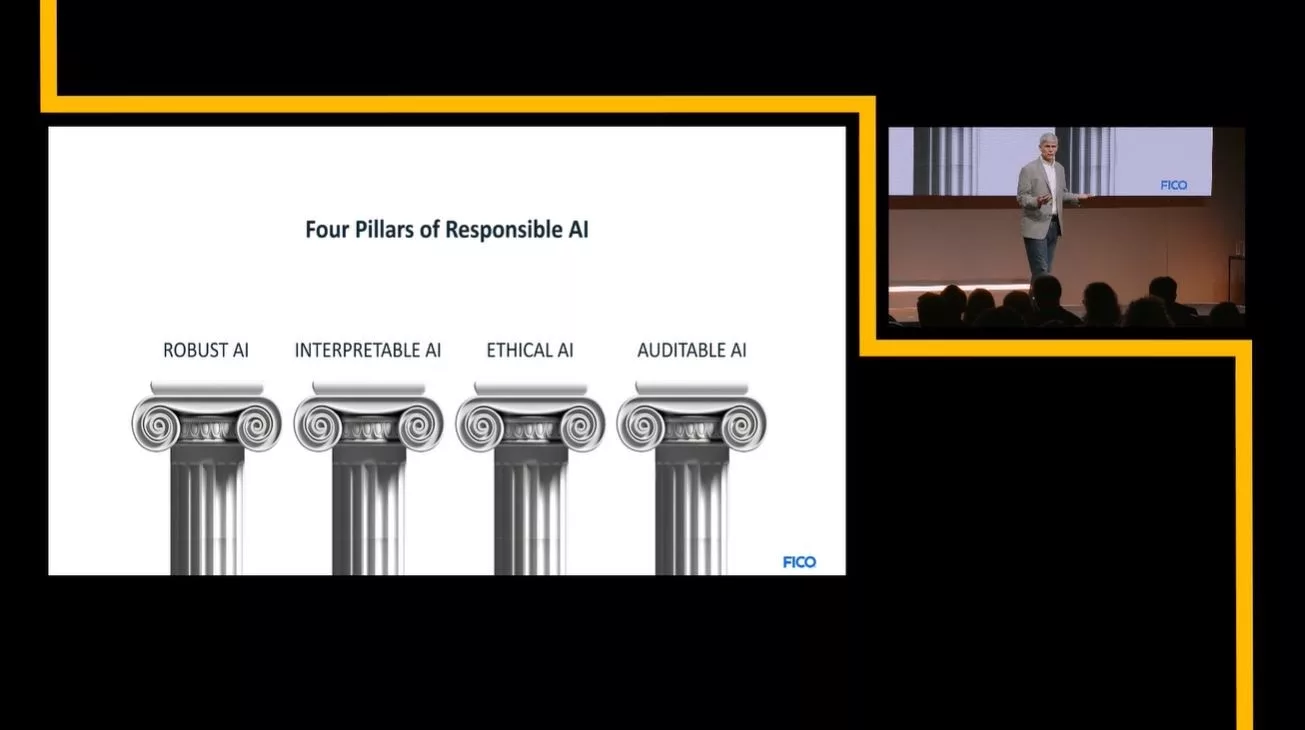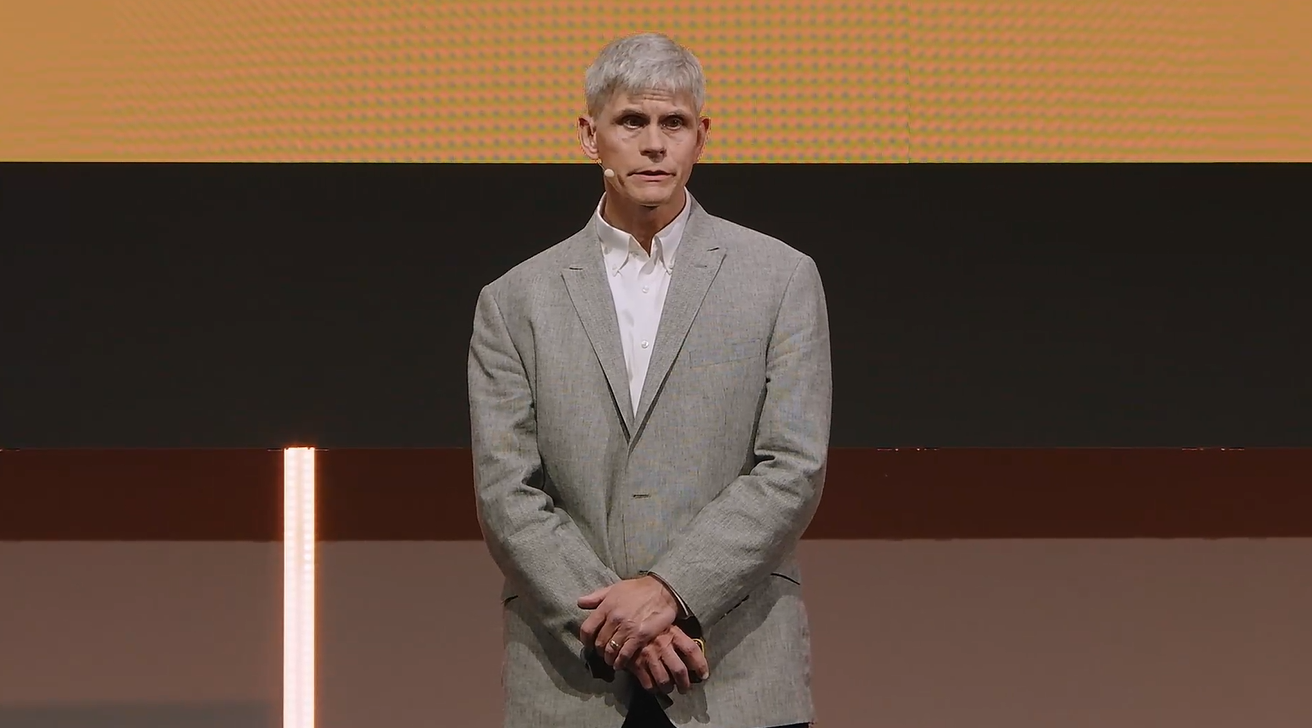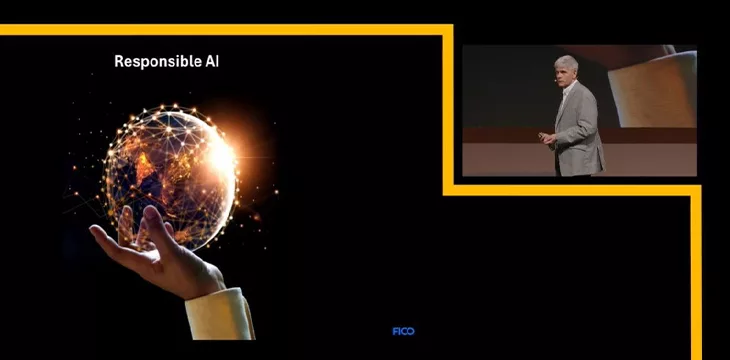|
Getting your Trinity Audio player ready...
|
Wrapping up Day 1 of the London Blockchain Conference 2024, Dr. Scott Zoldi took to the stage to give the crowded auditorium of blockchain enthusiasts and tech innovators a timely lesson in responsible artificial intelligence (AI), including how blockchain is critically essential to enforce and provide proof of Responsible AI methods.
The audience at the ‘Visionaries’ stage of the ExCeL London was buzzing with energy from a day so packed with talks on tech, regulation and innovation that it would give ChatGPT a headache, as they shuffled into the expansive main auditorium to hear the day’s second keynote speaker.
Zoldi is the Chief Analytics Officer at FICO, a data analytics company based in Bozeman, Montana, focused on credit scoring services. He’s also responsible for AI and analytic innovation across FICO’s product and technology solutions and an outspoken proponent of AI governance and regulation, which puts the talk’s subject matter firmly in his wheelhouse.

“Now, more than ever, it’s imperative we establish trust in AI governance,” said Zoldi, kicking off his talk by throwing down the gauntlet to AI developers.
“The last eight years or so I’ve been focused on responsible AI, the idea that not all AI is suitable for all circumstances. We tolerate hallucinations, we tolerate bias, we tolerate that nobody knows how to explain these models.”
Zoldi’s talk revolved around his belief that the use of AI is critically important to society, but this is all the more reason we must move beyond hollow pledges and ethics committees to do right and do right by the technology.
To flesh out the PR problem facing the AI space, he presented several worrying stats, including a KPMG survey of 17,000 consumers across 17 countries that found 61% wary about AI and a whopping 73% perceived significant risks related to the technology.
“We are heading for an AI-winter,” warned Zoldi, due to a combination of public perception, trust issues and high-level concerns.
But all is not lost. According to Zoldi, we need “responsible AI” to meet this challenge.

Responsible AI can be broken down into four pillars: robust AI (understanding that when you build an AI model, it’s something you must take seriously); interpretable AI (getting away from the “black boxes behind brick walls” so people can understand what it is and how its used); ethical AI (thoroughly testing AI to find issues such as bias); and auditable AI (“providing a source of truth” around whether a model is built properly, how decisions were made in the design etc.)
It was the latter of these pillars on which Zoldi chose to focus the majority of his talk.
Auditable AI
“These are very complicated models that are very difficult to understand,” said Zoldi. “People are building models with the wrong technologies; they are not audited appropriately.”
Part of the problem is the lack of a single standard for how to audit AI, what Zoldi referred to as the ‘highlander model’—in order to address the confusion over how to regulate AI, “there should be only one guide.”
A corporate model governance standard is needed, which should include proper problem formulation, interpretable architecture, bias detection, proper model selection, monitoring specifications, and stability testing.
This is where blockchain comes into the discussion.
Blockchain provides trust in the process
“When blockchain became very popular, I had a CTO who challenged me, he said, there must be an application for blockchain in our space, and there was,” recounted Zoldi. “Blockchain is my perfect tool… for us it was important that we had the immutability of every decision that got made.”
In order to provide an auditable process, you need to know where you’ve been and where you’re going. Mistakes get made; that’s part and parcel of the process, but with the blockchain, there is a record of these mistakes and what the journey looked like.

With this, you have the ability for auditable AI and the groundwork for an industry standard.
Zoldi explained how blockchain also allowed his team to show that they have the right intent to record everything in the process, blemishes and all.
“Each and every model [produced by y team] has its own blockchain… accountability is through transparency,” he said.
The process of producing an auditable and responsible AI, as Zoldi and his team see it, should involve setting the purpose of the AI before testing even begins; following a number of required testing criteria (“requirements”), such as bias testing, and then having each requirement approved by three verifiers, who check each other’s work; then, only when all requirements are completed, is a model ready for release—and of course, everything along the way is recorded on the blockchain.
As Zoldi stated, “the blockchain is the single source of truth. The blockchain ensures you’ve built to a standard,” as well as ensuring you can share with regulators that process.
Summing up his lesson on how to un-murky the world of AI development, Zoldi reiterated to the enrapt attendees:
“AI has a trust issue, because there’s good, bad and ugly, but most AI models are built badly, and it’s up to us to make sure they are built correctly… There’s going to be a lot of restrictions placed on AI because of this.”
However, blockchain is to the rescue! In concluding his keynote, Zoldi stated that blockchain can regain trust and act as an “enforcer” of good standards, as it can enable the auditing of AI models.
In other words, combining two of the most innovative technologies of the moment, AI and blockchain, can benefit both in different and potentially crucial ways.
Food for thought for the assembled tech literate delegates to mull over as they head out of the day’s final talk towards the conference’s well stocked wine bar—no auditing of consumption required.
In order for artificial intelligence (AI) to work right within the law and thrive in the face of growing challenges, it needs to integrate an enterprise blockchain system that ensures data input quality and ownership—allowing it to keep data safe while also guaranteeing the immutability of data. Check out CoinGeek’s coverage on this emerging tech to learn more why Enterprise blockchain will be the backbone of AI.
Watch: Understanding the dynamics of blockchain & AI

 03-04-2026
03-04-2026 




